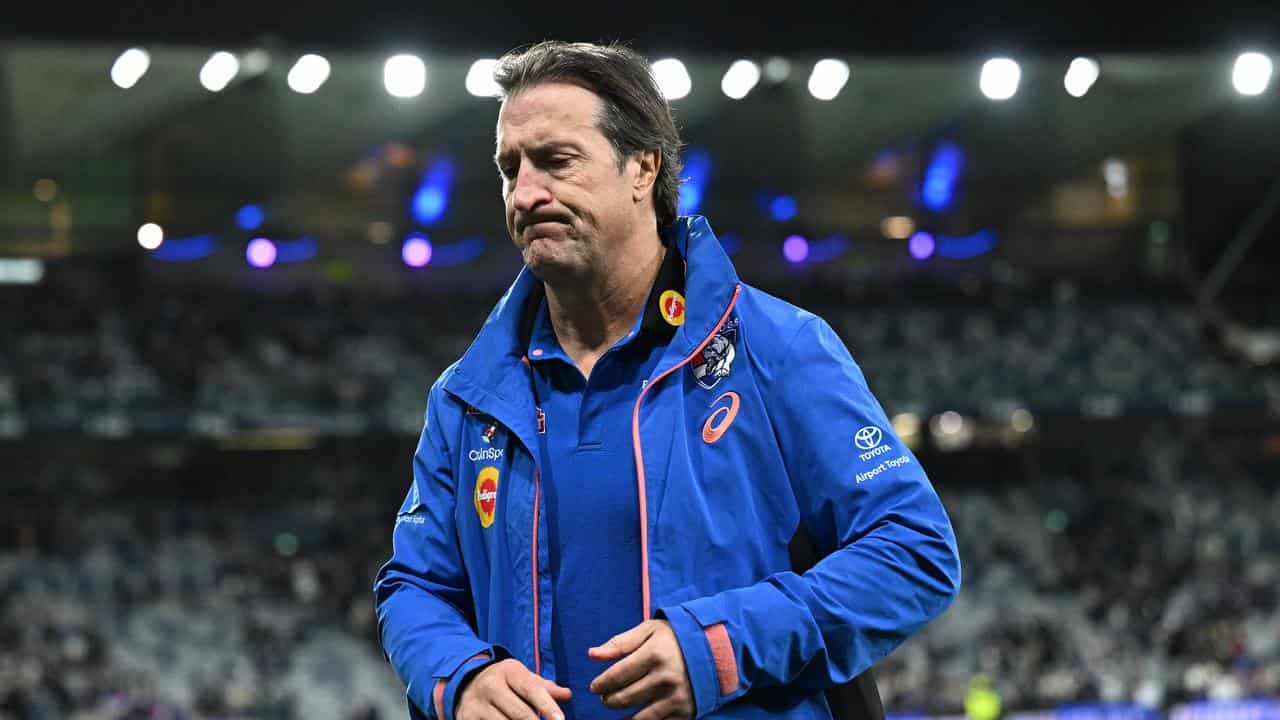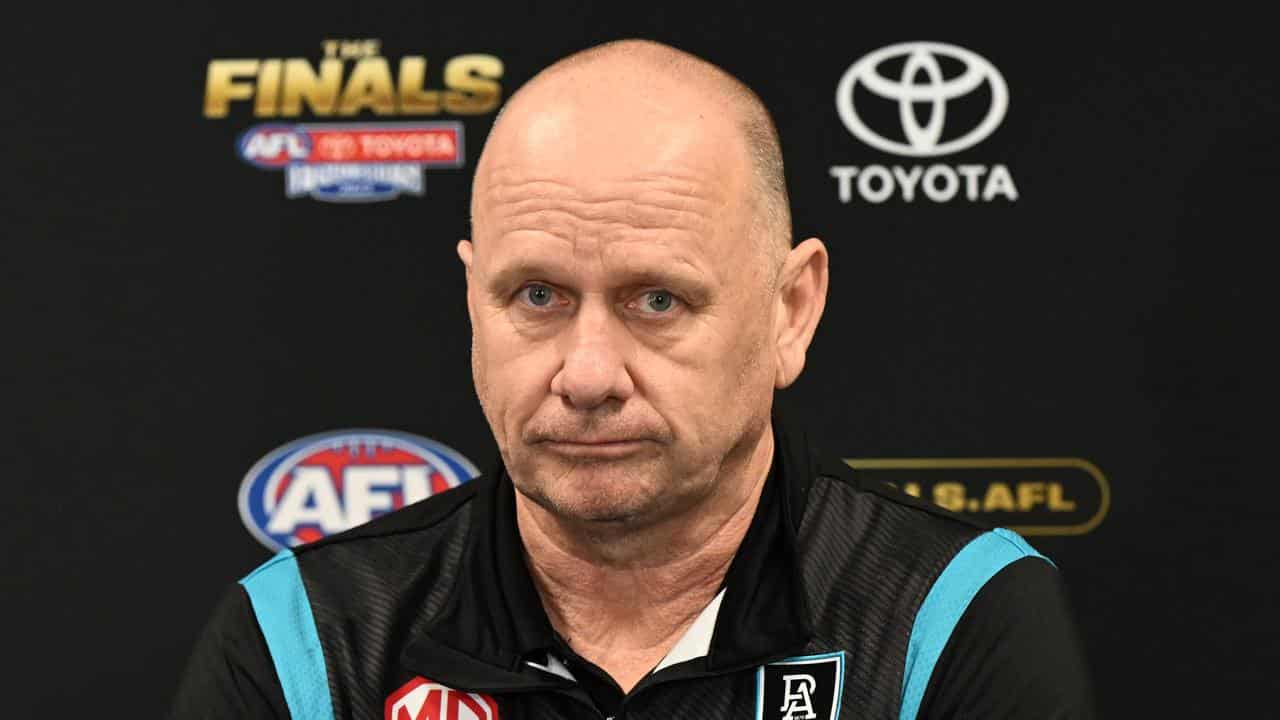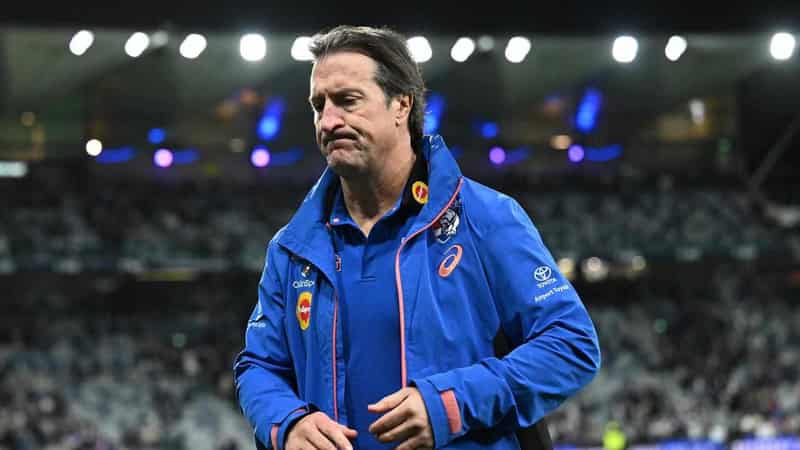
The AFL's illicit-drugs policy fails to cater for the vast majority of players who don't use drugs, Western Bulldogs coach Luke Beveridge says.
Beveridge wants an overhaul of the current policy amid revelations of a secret regime protecting drug-taking players from testing positive on match day.
"All I want is for the new model to cater for the people who don't take illicit drugs," Beveridge told reporters on Friday.
"I want it to cater for the vast majority, the 99 per cent, of the playing cohort who don't take them.
"This is where the PA (AFL Players Association) and their attitude and their perception of how clubs would manage situations forget that it's the playing cohort who are affected by it as well.
"They (the cohort) are trying to play in winning teams, premiership teams, and all staff want to do is support their playing group and each other and the current model doesn't do that.
"So whatever it is, it needs to take that in and be mindful that people in the industry need to be supported by whatever the new model is as well."
In 2022, Beveridge called for the policy to be scrapped after his star player Bailey Smith's drug case that year.
Smith, in June 2022, was suspended for two games by the AFL for conduct unbecoming after footage emerged of him with a bag of white powder understood to be cocaine.
This week, Sport Integrity Australia launched an investigation into claims raised under parliamentary privilege by federal MP Andrew Wilkie of secret drug testing of AFL players.
Under the so-called medical model, club doctors tested players midweek and then told them to fake an injury and miss a game to avoid testing positive on match day.
The practice has drawn widespread criticism with most coaches and players unaware it existed.
AFL chief executive Andrew Dillon said on Wednesday the league was "unapologetic" about giving club doctors powers to withdraw players from games to prevent testing positive on game day.
Both Dillon, who said the policy was under review, and AFLPA chief executive Paul Marsh said only a handful of players had been protected by the secret testing policy, but some reports state the number is about 100.
St Kilda coach Ross Lyon called for clarity about the numbers.
"Statistically, whatever is occurring, probably everyone would like to know ... these are the numbers and this is the success or failure of the program," he said on Thursday.
"That’s something that would probably put us all at ease, to be fair, it’s not as opaque then. That could help inform us to whether we support it or not.”

On Friday, Port Adelaide coach Ken Hinkley and his Richmond counterpart Adem Yze said they would support whatever policy the AFL adopted.
"I am a bit more matter of fact," Hinkley said.
"The AFL and the AFLPA have a policy on drugs and my job is to respect that policy and that's all I do ... I don't have a view that I'm prepared to share either way, personally, around that situation."
Yze said the welfare of players was paramount.
"Whatever comes of the new policy, in the end for us it's about the welfare and wellbeing of our players," he said.
"We abide by the AFL rules and whatever they are, if it's a new policy we will abide by those."









